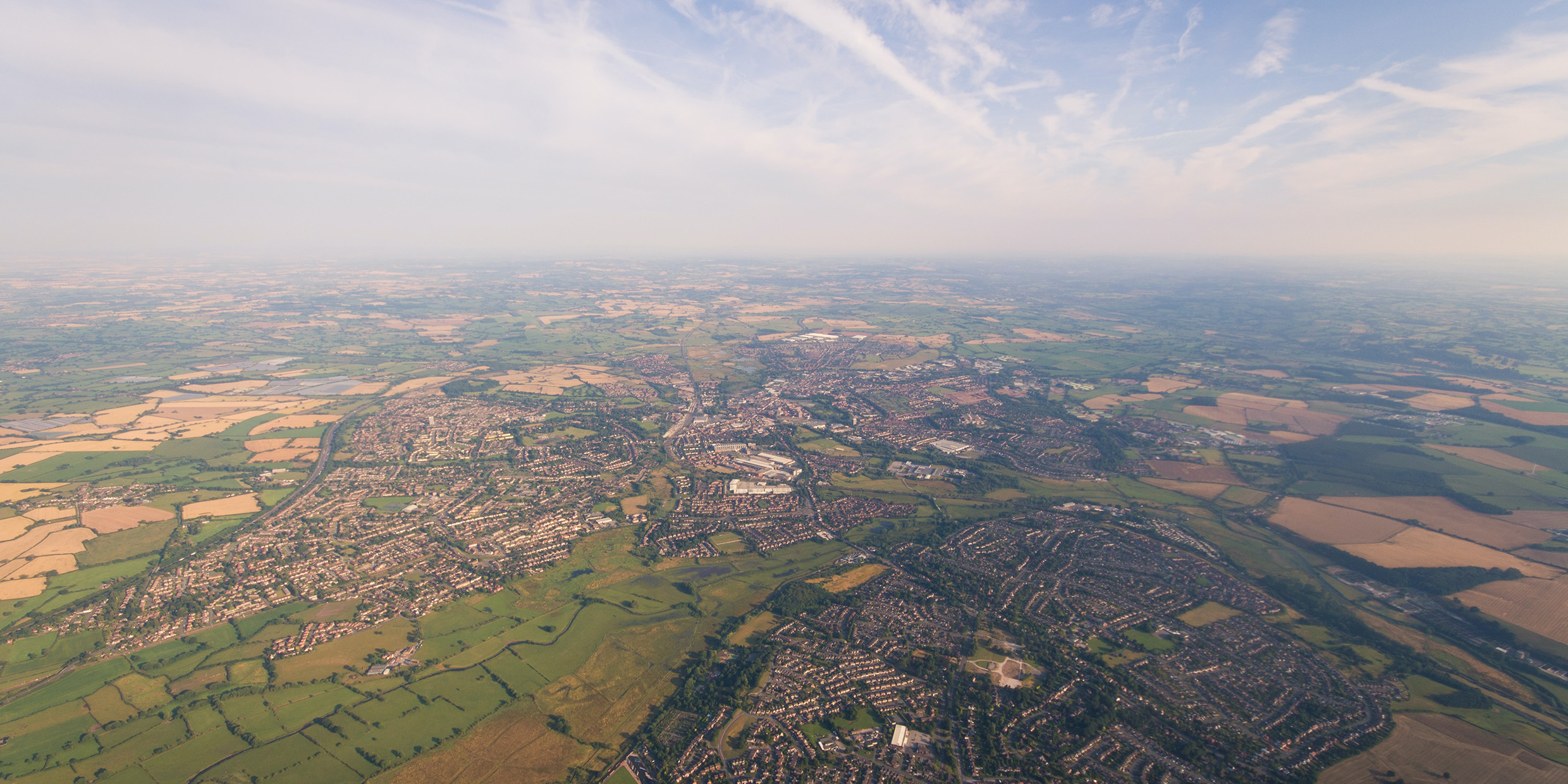Originally published 11 November 2003
What are England’s greatest gifts to civilization?
Parliamentary democracy. Shakespeare. The Industrial Revolution. The Beatles.
And something else.
An idea of “countryside.”
A place too tame to be “wilderness,” too near-at-hand to be “rural.” A green and organic place, nourishing to the spirit.
And, most of all, accessible by foot.
For the past month, I’ve been walking around southeastern England, and the thing that struck me over and over is how successfully the English have preserved their countryside, even in the face of population growth and economic development.
You see nothing of the strip malls that blight every highway near American towns. You see nothing of the isolated houses and mini-developments that are plopped down hither and yon between American cities, until the whole countryside is a sprawling suburb.
Rather, English cities and towns are built up in compact fashion out to a line, and then they stop. Dead. One walks to the edge of town, along streets snugly lined with houses or shops, and then — bingo! — one is in the countryside. No gas stations and fast-food shops dribbling out to infinity. No malls. Not even new family homes. Just rolling countryside, crisscrossed with public footpaths.
This is no accident. It is the result of rigorous planning. But it is more than planning. It is cultural.
This is the England of Watership Down, The Wind in the Willows, and Winnie the Pooh. This is an idea of countryside that the English value more than any unfettered right to do what one wants with private land.
Let me describe just one of my walks.
I began at the town of Peacehaven on the southern coast, on white chalky cliffs above the English Channel, at the monument marking the Greenwich Meridian, the line of zero longitude. I walked a mile through Peacehaven — tidy rows of houses clustered about a commercial center. Then, quite suddenly, I took another step and I was in countryside.
I walked 8 miles northward across the South Downs — rolling agricultural land — following public footpaths across private land, each right-of-way marked in green on my “Explorer” map, one of a series of hundreds of detailed maps, covering England and Wales, published by the British government mapping agency for the benefit of walkers, bikers, and equestrians.
The very few houses or farms I passed along the way had been there from time immemorial. I did not put foot on a paved road or see a hint of commercial development until I reached the well-defined edge of the town of Lewes. A few more steps and I was having a pint at the Meridian Pub, also on the line of zero longitude.
Many of the footpaths I walked had been there since the Middle Ages. The English defend their access to ancient rights-of-way against all encroachments by landowners or developers. By law, access is guaranteed, and local rambler clubs maintain the paths on behalf of the county governments, providing where necessary, signage, gates, and stiles.
And, yes, you can find Watership Down on the maps — it’s a real place — and Pooh Sticks Bridge, near A. A. Milne’s home in Ashdown Forest.
Alas, the notion of inviolate countryside was not one of England’s gifts to America. Americans carved their nation out of a wilderness, and developed a fierce commitment to the sanctity of private property. The idea that government can tell us where we can or cannot build a house or a strip mall is foreign to our culture.
Even our national parks and forests are forced to yield to the “rights” of citizens to churn up the land and pollute the air with ATVs, motorbikes, and snowmobiles. The forces of greed are always waiting to clear-cut timber, strip-mine, or drill for oil on public land.
Of course, I’m generalizing. The English are not without their own forces of greed, nor is America without its champions of the near countryside. But having spent a month walking a land ancient with human habitation, I return impressed by the possibility of having economic development and a viable countryside, too.
What we lack is will.



